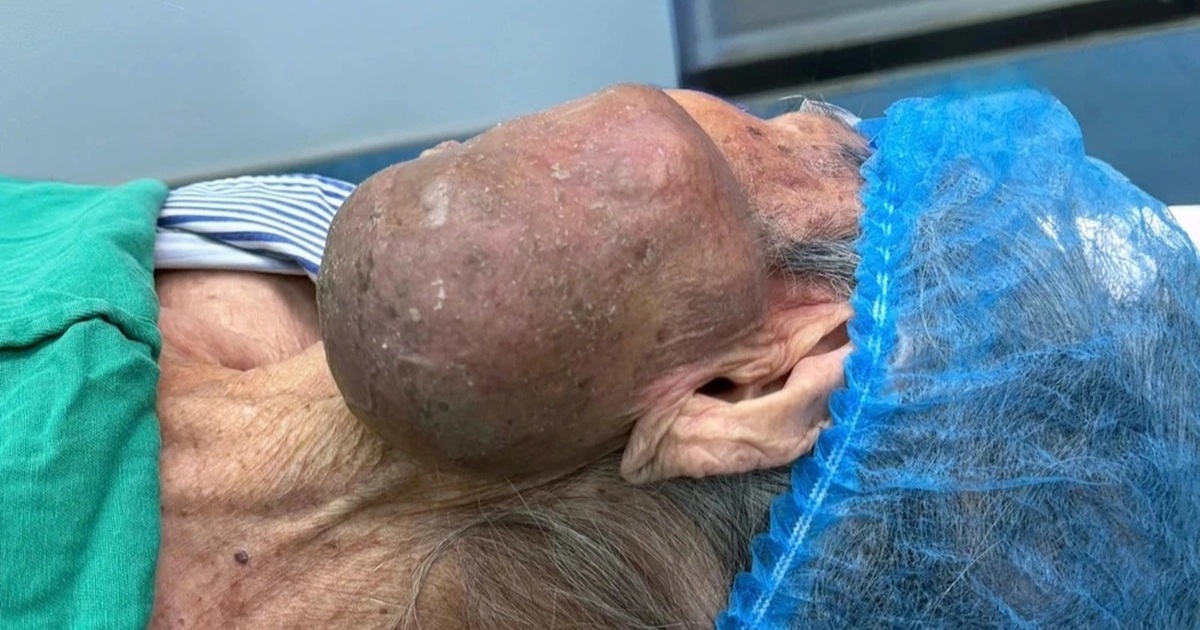Tumors Significantly Reduced
Pembroria, containing the active ingredient pembrolizumab, 100mg/4ml vial, manufactured by Limited Liability “PK-137” in the Russian Federation, received its marketing authorization on October 31st, drawing significant public attention.
The Drug Administration of Vietnam (Ministry of Health) also affirmed that this newly licensed Russian cancer drug is not a new indication cancer medication.
In fact, since 2017, a similar cancer treatment drug with the active ingredient pembrolizumab, manufactured in the US and named Keytruda, had already been approved for circulation by the Drug Administration of Vietnam (Ministry of Health).
Speaking with Dân trí newspaper reporters, MSc. Dr. Nguyen Duy Anh, an expert in nuclear medicine and oncology, stated that this is essentially an immunotherapy drug for cancer treatment. The US-made Keytruda has been used to treat cancer in both public and private healthcare facilities for many years.
According to his analysis, simply put, the drug enhances the ability of the body’s own immune cells to find and destroy cancer cells.
“Cancer cells have a camouflage layer that prevents immune cells from detecting them. Immunotherapy drugs remove this camouflage layer, increasing the immune cells’ ability to find and destroy,” explained Dr. Duy Anh.
Based on clinical practice, the doctor prescribes immunotherapy for an average of 20-30 cancer patients per year.
The main indications are lung cancer, colorectal cancer, gastrointestinal cancer, cervical cancer, breast cancer, and esophageal cancer.
“Depending on the patient, the duration of effectiveness varies. Typically, for patients who respond well, the effective period lasts 20-24 months, but some cases only respond for about 6 months,” Dr. Duy Anh shared from his treatment experience.
According to this expert, during the period of drug response, cancer cells are gradually destroyed, causing tumors to shrink. When the drug is no longer effective, doctors need to switch to another treatment option.
At this point, doctors will rely on guidelines from organizations like the Ministry of Health to make prescriptions, potentially switching to chemotherapy or targeted therapy drugs.
The expert shared a case of a 75-year-old patient who had been suffering from lung cancer for 3 years.
The patient had undergone surgery to remove the cancerous lung lobe, but the disease recurred in late 2024.
“When he returned, the tumor was not only in his lungs but had also spread to his neck lymph nodes. He lost weight, lost his voice, had difficulty swallowing, experienced significant pain, and required oxygen almost all day,” Dr. Duy Anh recounted.
The patient was initially treated with a regimen combining low-toxicity chemotherapy and immunotherapy.
After the first cycle, the patient experienced reduced pain and shortness of breath, with no significant side effects.
By the fourth cycle, the patient could speak, no longer needed oxygen, ate better, and most notably, became more positive.
“After 3 treatment courses, the tumor in the right lung had disappeared; tumors in the left lung and the base of the lung had shrunk by 50% compared to before treatment; supraclavicular lymph nodes had reduced from 5x6cm to 4.5×3.5cm; some tumors even shrank by more than 80% compared to before treatment,” Dr. Duy Anh shared.
Russian Drug Offers Hope for Reduced Treatment Cost Burden
According to Dr. Duy Anh, although it is not a cancer drug with a new indication, the Russian product is expected to significantly reduce the financial burden of this superior yet expensive treatment method.
“The American product costs over 60 million VND per vial; each infusion requires 2 vials, and is administered approximately every 3 weeks. The cost creates a major barrier for patients in accessing this highly effective treatment method,” Dr. Duy Anh shared.
The estimated price of Pembroria is approximately 18 million VND per vial, with the common dose being 2 vials per treatment cycle. Thus, the cost for one treatment cycle for a patient is about 36 million VND for a 200mg dose (2 vials).
The Russian cancer drug is indicated for the treatment of esophageal carcinoma, cancers with high microsatellite instability (MSI-H) or mismatch repair deficiency, cervical cancer, renal cell carcinoma, endometrial carcinoma, triple-negative breast cancer, gastric or gastroesophageal junction adenocarcinoma, and biliary tract carcinoma.



